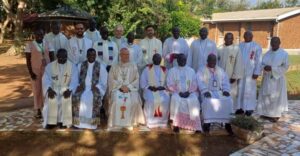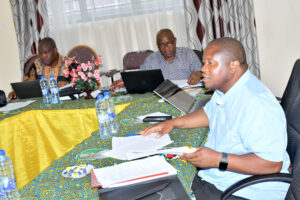ZAMBIA: Caritas Condemns Illicit Trade in Wildlife and calls for joint effort to care for the environment

Caritas Zambia has expressed concern that people charged with the responsibility of protecting the wildlife are encouraging illegal trade through dubious deals and issuance of hunting licenses as well as concessions on timber.
In a message issued by Caritas Zambia to mark World Environment Day which falls on June 5, the Acting Director, Mr. Eugene Kabilika, appealed for necessary measures aimed at protecting mother earth by stopping all forms of burning, cutting of trees, poisoning nature and environment.
“Curbing illegal wildlife trade should not be done in isolation. It should be part of the larger program of caring for the environment that prioritizes equity for the benefit of Zambians, especially the communities living near game management areas and forests” Kabilika said.
He added that his Organization believes that the protection of wildlife should be for every Zambian. “We call for zero tolerance towards illegal wild life trade. The fight against destruction of natural forest and killing of wildlife cannot be a reality if our current trends of consumption and damaging of the earth continue. The rate of poaching and cutting of trees exceeds the natural regeneration of the population of animals and trees thereby pushing threatened species to extinction.”

Acting Director, Caritas Zambia
He further explained that engaging local communities to care for wildlife is recognized as a key approach to tackling the illegal wildlife trade adding that as long as communities in Zambia, especially those living near game management areas and forests, do not see these resources as their own and devoid of their local economy; poaching and indiscriminate cutting of trees will continue.
“We need to design programs that will support alternative livelihoods of communities living in these areas and also make the economic value of wildlife to be part of the community’s local economy,” this he said will turn such communities into game rangers.
Meanwhile, Kabilika also condemned effects of large scale agricultural activities as well as mining, which he said are known to be the largest contributors to the destruction of biodiversity and eco-systems.
“The use of pesticides and clearance of large areas of forests renders the soils bare and polluted and in the case of mining completely unusable. Although in the short term mining and large scale farming may present themselves as solution to increased economic growth, the cost involved to sustain such practices are high both in economic and environmental terms” He explained.
He reiterated Pope Francis’ request to nourish and sustain the earth, so that it can in turn nourish and sustain humanity.
By Mwenya Mukuka, ZEC Communications Officer


